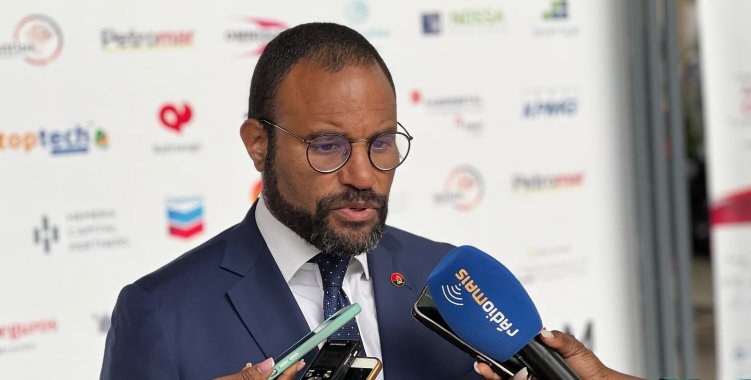Mário Caetano João presented these data at the opening of the 2nd edition of the Angola Economic Outlook 2023, which took place this Wednesday, in Luanda, under the theme "Human Capital as a Decisive Factor for Development", organized in partnership with Economy and Markets magazine.
The official stressed that Angola expects, for the third consecutive year, to register economic growth, highlighting that the International Monetary Fund (IMF), in its most recent publication of the World Economic Outlook, expects growth of 1.3 percent for the country, but the Government's projections point to growth slightly below 1 percent, due to the decrease in oil production.
For the General State Budget (OGE) for 2024, the Government had a "conservative" price of 65 dollars per barrel of oil and a revised oil production of 1060 million barrels per day.
According to the minister, the contraction in oil production levels created a scenario of reduced availability of hard currency in the foreign exchange market in the first half of this year, resulting in the depreciation of the kwanza against the United States dollar by around 40 per cent. cent.
"This environment of slowdown in the real economy and the foreign exchange market severely affected the process of consolidating public accounts and the stability of the general level of prices in the economy, with annual inflation reversing its downward trend in May, settling at around of 15 percent in September this year", he said.
Regarding the depreciation of the kwanza, the vice-governor of the National Bank of Angola (BNA), Pedro Castro e Silva, said that for 2024 it is expected that less access to the debt market will continue for African countries, indicating that there will be no change to the level of foreign currency in the local foreign exchange market.
For 2024, the IMF forecasts economic growth of 3.3 percent, while the Government projects growth of 2.8 percent, mainly driven by the non-oil sector.
In his presentation, the Secretary of State for Planning, Milton Reis, said that the most recent data point to "very low" growth, predicting an acceleration in the coming years, based on the measures that the Government began to take from June this year.
Milton Reis stressed that the weak growth in 2023 is due to the declining trend in oil production, due to old fields and the absence of new discoveries, highlighting the still robust growth and maintenance of the non-oil sector, which is expected to grow in 2024 above 4 Percent.
In relation to prices, the country also continues to see pressure this year, mainly for food.
The Secretary of State for Planning stressed that the Angolan economy continues to face risks, including the weak recovery of the world economy, the level of oil production, still the country's main source of foreign exchange, necessary to boost the non-oil sector.
"When we have difficulties in the oil sector it also affects the entire non-oil economy, so we have to continue looking at oil with the importance it has for our economy, despite all the diversification efforts, we need resources from the oil sector to accelerate this dynamic of this diversification", he highlighted.







